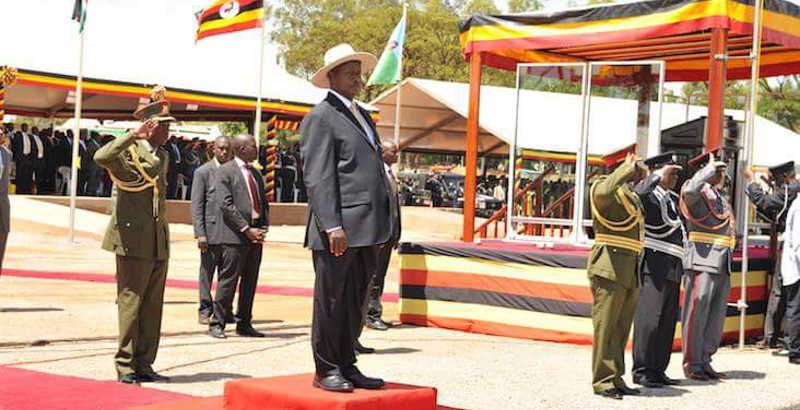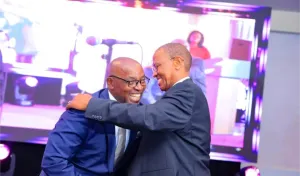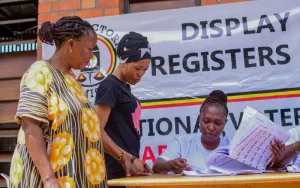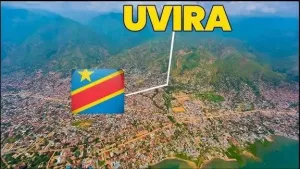

Museveni has occupied the lime light at Kololo for 30 years
Come February 2016 when Uganda will be deciding on the next president numerous speculations now niggling at the back of the hearts of most Ugandans will have become an unbearable ticking time bomb.
Many Ugandans have known one president for a very long time and most of them are trying to figure out what will happen when Museveni is gone; that’s in case he goes anyway. While the optimists predict a better Uganda we cannot rule out the presence of vast majority of people who anticipate doom. They live in awed fear that the departure of Museveni will only open a can of warms.
The NRM candidate has been around for some good time even when the mountains were still young. Riding a wave of popularity, mocking the extravagance of past leaders.
He soon adopted a more liberal approach, signing up to the International Monetary Fund’s structural adjustment programs in the early 1990s and securing foreign investment.
Before Museveni came on stage Ugandans had endured years of Obote’s turmoil and the arbitrary rule of Idi Amin. When the ‘messiah’ showed up they began enjoying sturdy economic growth and political order for the first time since independence in 1962.
Museveni won praises from Ugandans and other international leaders including the then U.S. President Bill Clinton, who called him one of a “new breed of African leaders”.
The Baganda have a saying: ‘Nazina obulungi ava mudiiro’- literally meaning that even the best dancer will have his time up and leave the stage. In tale we are told that when an old bird gets his wings weak, he ceases flights, takes a rest and watches the young ones fly.
Ugandans and Western politicians, including those who used to praise Museveni, have shown growing unease at his ever-extending time in office. He is still around because he has won every vote since the first election under his presidency in 1996. We cannot also undermine the fact that his opponents have increasingly said votes are rigged, a charge he himself denies.
Recently at a function organized by NRM leaders in western region to celebrate the President’s acceptance to become the party presidential candidate in 2016, Gen. Otafiire said, “Yes, President Museveni will go when time comes or when he gets old but we as NRM will sit and choose his successor, not anyone to stand and say I want to succeed Museveni,” He went ahead to say, “Mbabazi ( a former premier and now presidential candidate ), you can’t say you want to take on the chair of your father when he is still standing”.
Gen Otafiire went ahead to say he and his colleagues shed blood for the current peace in the country but warned it could all end if Ugandans misuse it and vote wrong leaders. The truth is NRM historicals and freedom fighters, as they love to be referred to, have always fielded the same excuse before Ugandans every time someone came up to challenge President Museveni or exhibit his interest in the top most office.
When asked by journalists recently during his campaign trails At Arua State Lodge on whether he will accept defeat if he lost the February 2016 elections, President Museveni did not hesitate to answer . He said “If I lose elections, I have got a job at home. I am a cattle keeper.” In fact he also said that he will abide by the Constitutional 75 year-age-limit for presidents and retire peacefully. People who know Museveni as a verbal contortionist, especially the opposition, cannot believe in this gimmick. They know him as a person who says one thing today and does another thing tomorrow. They actually know that he will still manipulate the constitution to lift age limits as he did with term limits.
Contrary to accusations from his opponents that he is power hungry, Museveni believes he is not. “I am not power hungry. I am mission hungry,” he said, emphasizing that he is in politics not to look for power but to accomplish certain missions such as the East African Community federation and social economic transformation of the country. He even says that he cannot be intimidated not to pursue his aspirations by Opposition actors such as Dr. Col. Kizza Besigye, the FDC flag bearer. Like any other concerned person he cannot abandon the country to people who have no mission.
Muammar Gaddafi died the death he had predicted – fighting to the last against his own people, who rose up against him, (of course supported by foreign forces) after more than four decades of authoritarian rule. The unrest, political turmoil and all the woes in Libya today partly springs from the fact that Gaddafi refused to get off the political saddle and had opted to rule for life.
The best gift a leader can ever give to his country is to hand over power peacefully when the public decides that another person should take over.
Four years after the uprising that ousted Hosni Mubarak from power, Egypt continues to grapple with an authoritarian state. Throughout the rise and fall of the Muslim Brotherhood, authoritarian forces remained the key political players. Democratic alternatives have not capitalized on cracks in the system. Prospects for the Brotherhood’s political reintegration and a democratization of political Islam are bleak. As long as credible alternatives fail to gain traction, the old state will persist and Egypt’s central challenges will remain unresolved.














Henry Lutaaya
Leave a Comment
Your email address will not be published.